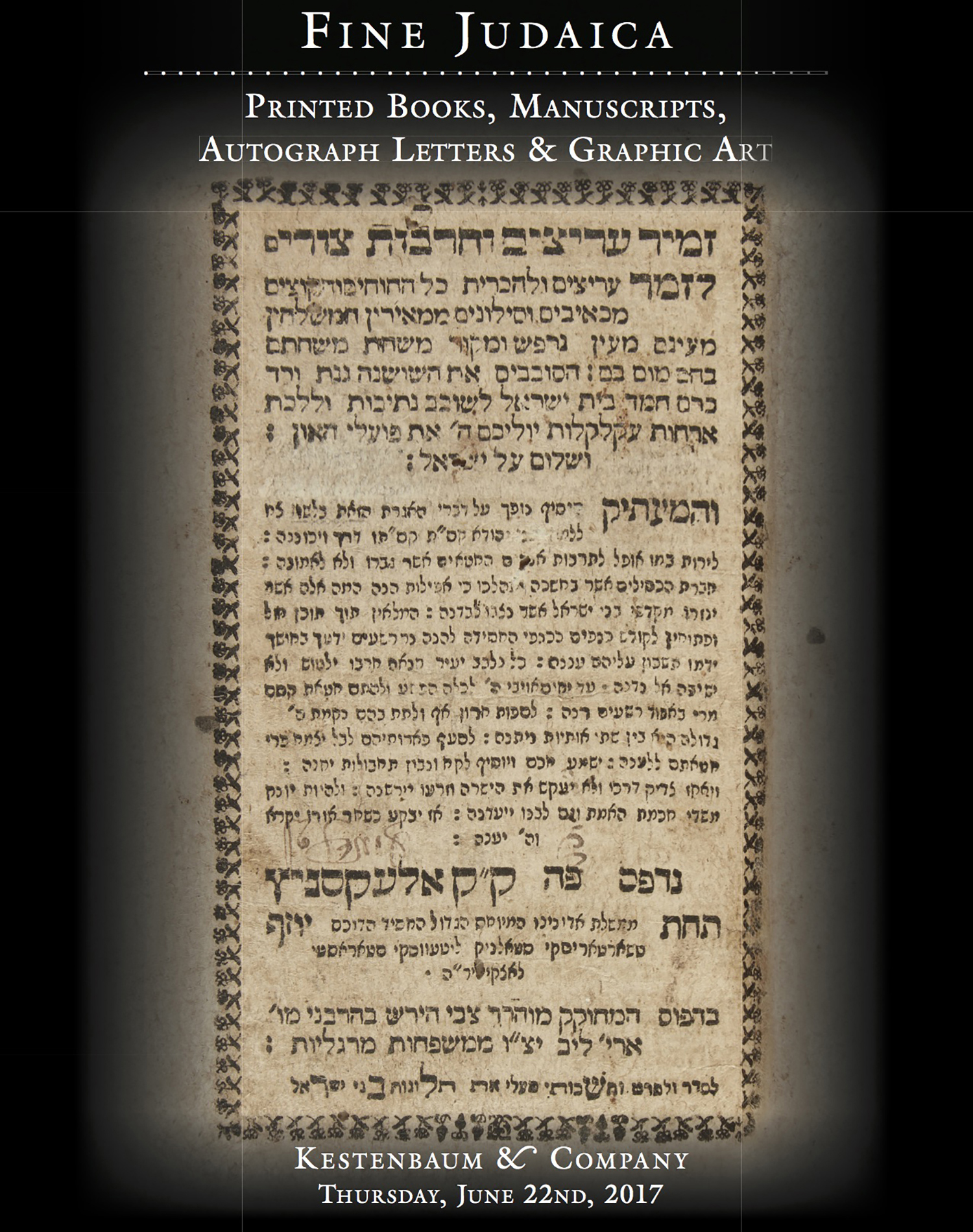“Cheschwan.” Autograph manuscript in German, with occasional use of Hebrew; with corrections in the same hand.

AUCTION 73 |
Thursday, June 22nd,
2017 at 1:00
Fine Judaica: Printed Books, Manuscripts, Autograph Letters & Graphic Art
Lot 279
HIRSCH, SAMSON RAPHAEL
“Cheschwan.” Autograph manuscript in German, with occasional use of Hebrew; with corrections in the same hand.
(Frankfurt am Main: written before November, 1857)
Est: $3,000 - $5,000
PRICE REALIZED $2,000
Autograph manuscript of Samson Raphael Hirsch’s lead article on “Cheshvan” in the November 1857 issue of Jeschurun, the Orthodox monthly periodical that was edited and published by Hirsch himself, the rabbi of the secessionist Orthodox “Israelitische Religions-Gesellschaft” in Frankfurt am Main.
In this article Samson Raphael Hirsch reflects on the meaning of piousness (“Gottesfurcht”), especially in connection with a verse from the prophet Malachi 3:16 “In this vein have those who revere the Lord been talking to one another. The Lord has heard and noted it, and a scroll of remembrance has been written at His behest concerning those who revere the Lord and esteem His name.” Although a good deed is the most desirable aim for a pious Jew, the earnest will is already worth 2/3 of the deed, especially if it is shared and discussed within his community, the focal point of the religious life of a Jew. The greatest threat to piousness is indifference. The entire community and not just the rabbi or appointed leader must care about the religious life of all members - children should already be integrated into the community from an early age. Religion has to be lived within the community and shared as a communal experience. Religion cannot be a private, isolated matter.
In the context of these thoughts Hirsch sharply criticizes here the Reform movement. Especially since increasing numbers of municipal secular leaders view Reform rabbis as the titular heads of Jewish communities. This development endangers the autonomy and the very essence of Jewish communities according to Hirsch, a lifelong opponent of Reform Judaism and the intellectual founder of Orthodox Judaism in the modern era.
This article was published in: Jeschurun. Jg. 4. 5618 =1857/1858, Heft 2 (November 1857), p. 49-61.
